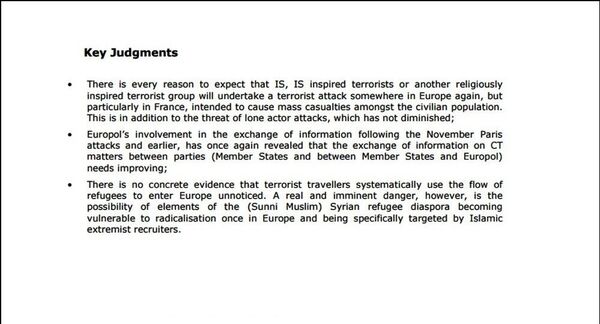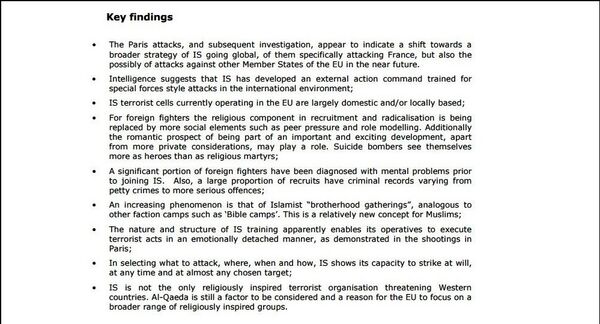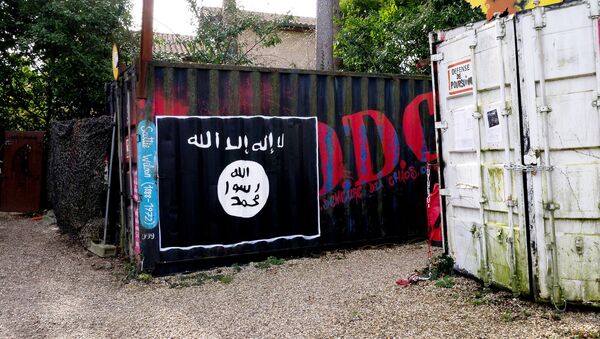Members of the Committee on Civil Liberties, Justice and Home Affairs, are set to discuss the implications of the latest assessment of the threat from Daesh by Europol that predicts:
"[Daesh] inspired terrorists or another religiously inspired terrorist group will undertake a terrorist attack somewhere in Europe again, but particularly in France, intended to cause mass casualties amongst the civilian population."

Brussels Bombings
The report was written ahead of the bombing of Brussels International Airport in late March 2016, in which three coordinated nail bombings at the airport and one at Maalbeek metro station in Brussels killed 32 victims. The three perpetrators were killed and over 300 people were injured.
"Intelligence suggests that IS [Daesh] has developed an external action command trained for special forces style attacks in the international environment. [Daesh] terrorist cells currently operating in the EU are largely domestic and/or locally based," the report states.
Apart from training facilities in Syria, the report says, there exist also smaller scale training camps in the EU and in Balkan countries. Survival training enables Daesh recruiters to test fitness and determination of aspiring members. Sports activities have been used for combat and interrogation resistance training.

"An increasing phenomenon is that of Islamist 'brotherhood gatherings', analogous to other faction camps that have existed for decades with other religious movements. This is a relatively new concept for Muslims, which first surfaced only a couple of years ago."
Intelligence information on foreigners joining the ranks of Daesh suggests that recruitment can take place very quickly, without necessarily requiring a long radicalization process. Age plays a role: younger people are found to be more impressionable and radicalize quicker than older candidates.


